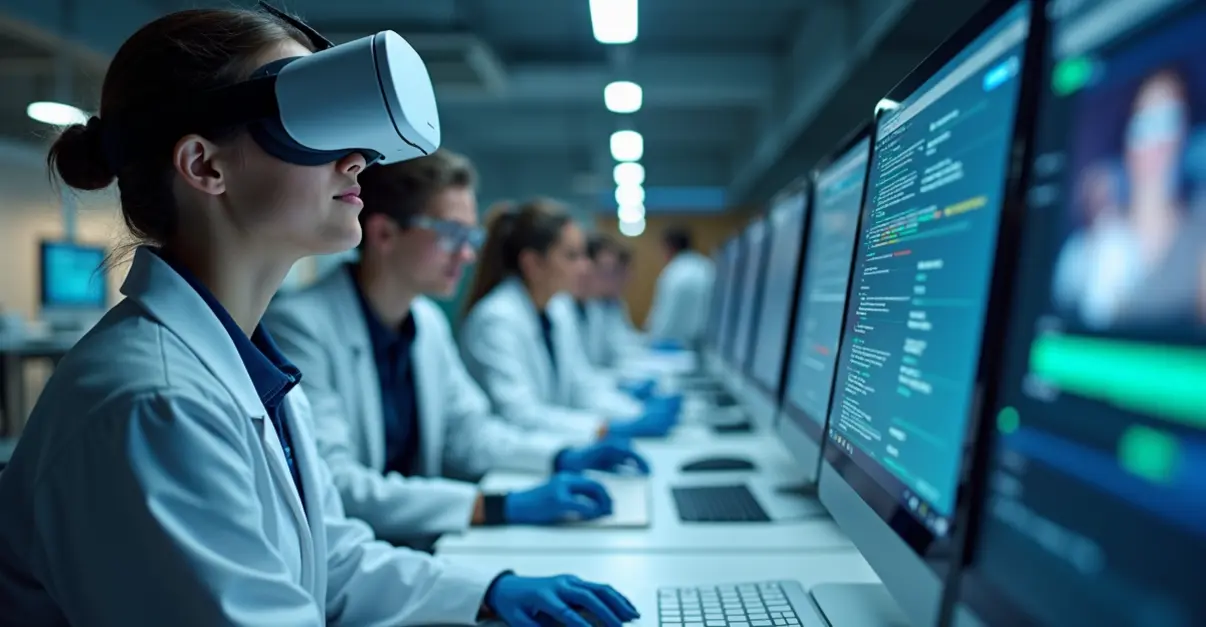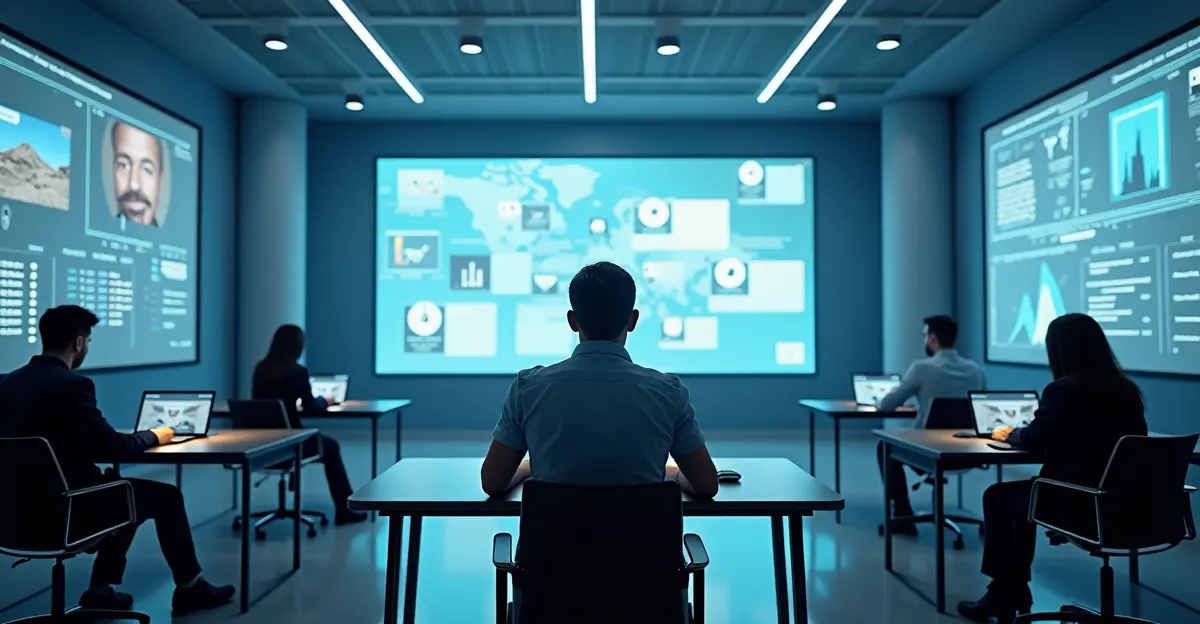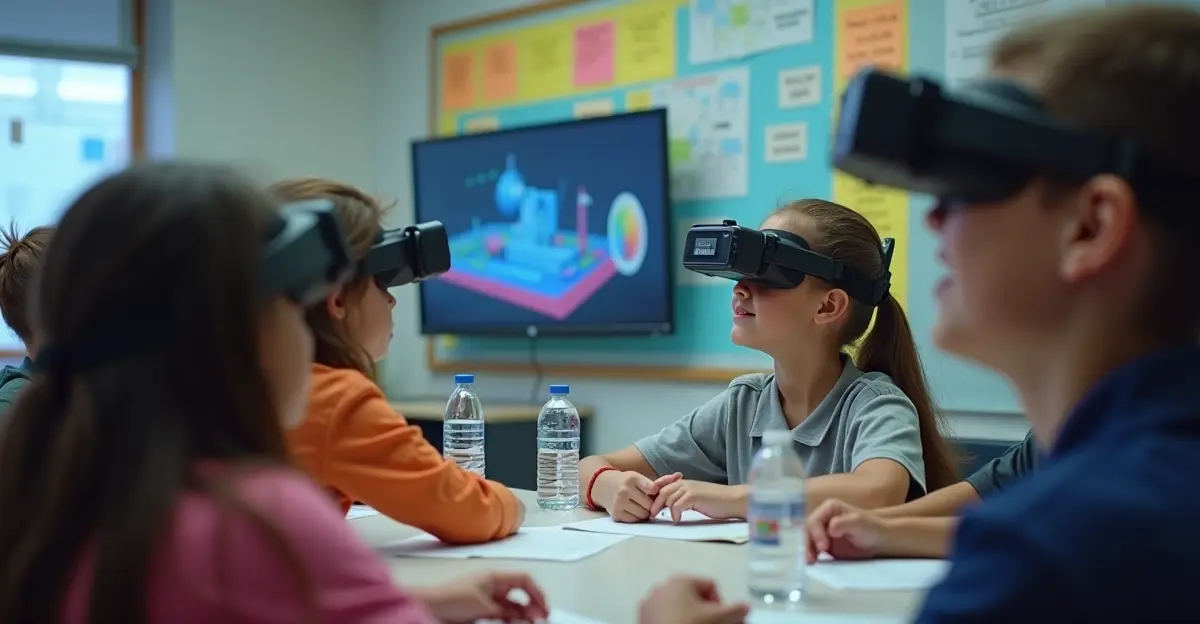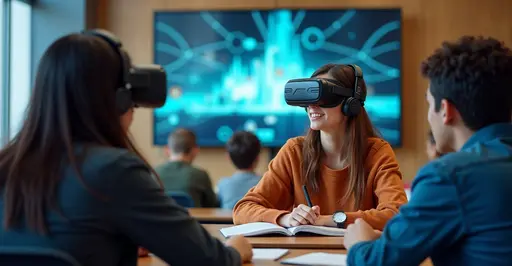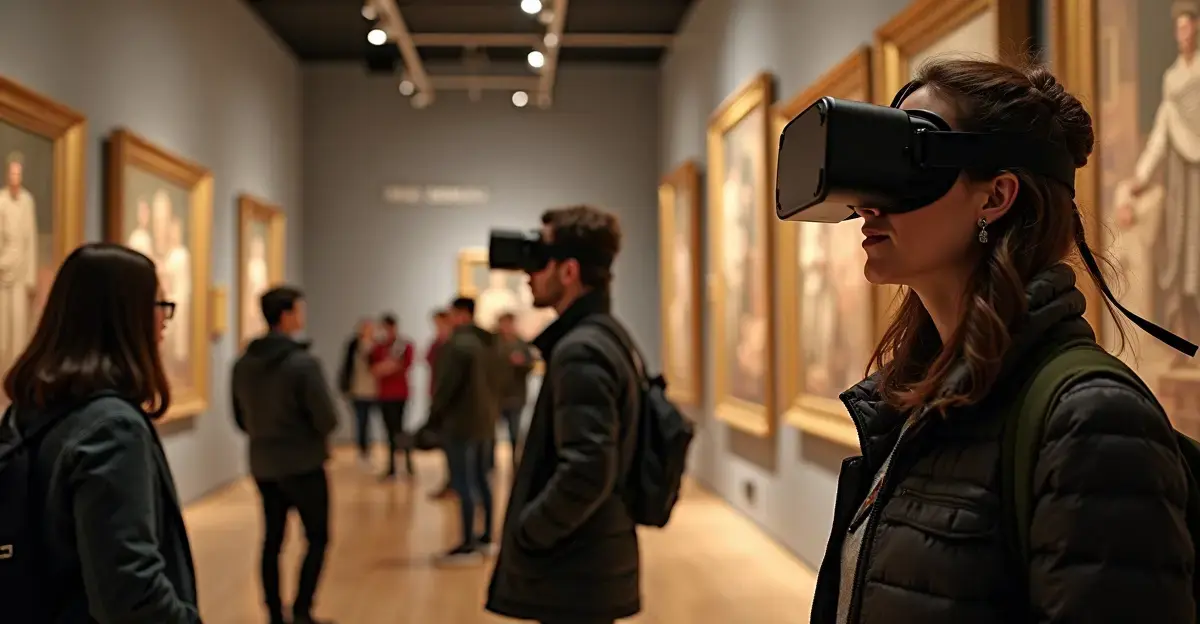Virtual Reality Revolutionizes Science Education
Education platforms are increasingly adopting virtual reality technology to create immersive science laboratories where students can conduct hands-on experiments using VR headsets. This innovative approach is transforming how students learn complex scientific concepts by providing safe, accessible, and engaging virtual environments.
Breaking Down Physical Barriers
Traditional science labs face numerous limitations including safety concerns, equipment costs, and physical space constraints. Virtual reality eliminates these barriers by allowing students to perform experiments that would be too dangerous, expensive, or impractical in real-world settings. 'Students can now dissect virtual frogs without the mess or ethical concerns, and conduct chemical reactions that would be hazardous in a physical lab,' explains Dr. Maria Rodriguez, an educational technology specialist at Stanford University.
Platforms like VRLab Academy offer over 240 curriculum-aligned science experiments covering biology, chemistry, and physics. These virtual laboratories are designed to align with IB, AP, GCSE, and K-12 science curricula, making cutting-edge science education accessible to students worldwide.
Proven Educational Benefits
A recent large-scale study from Arizona State University's Dreamscape Learn VR biology program demonstrates significant positive impacts. The research, involving over 4,000 students, found that VR lab users showed improved academic performance and higher retention rates in STEM majors. 'We saw STEM major retention increase from 71% to 76%, representing a 5% gain that translates to more future scientists staying in their fields,' notes Professor James Wilson, lead researcher of the study.
Students using VR labs achieved average lab grades of 90% or higher and showed better performance in subsequent advanced courses. The immersive nature of VR experiences helps students visualize abstract concepts and develop deeper understanding through interactive simulations.
Technology Platforms Leading the Way
Major technology companies are investing heavily in educational VR applications. Meta for Education provides schools with Quest devices and management tools to deploy VR experiences easily. The program has shown remarkable results, with some institutions reporting 87% higher student engagement and language learning usage increasing from 15 minutes to 225 minutes weekly.
Apple's Vision Pro, with its recent M5 chip update, offers enhanced performance for educational applications. The mixed-reality headset allows students to interact with virtual objects while maintaining awareness of their physical surroundings, creating a balanced learning environment.
Global Implementation and Accessibility
VR science labs are being implemented globally, with platforms like VRLab Academy used in over 40 countries. These solutions support multiple languages and localized curriculum mapping, making quality science education scalable and adaptable to different educational systems.
'The beauty of VR labs is that they democratize access to high-quality science education,' says Isabella Kowalska, an education technology consultant. 'Students in rural areas or underfunded schools can now access the same advanced laboratory experiences as those in well-equipped institutions.'
Future Outlook
As VR technology continues to advance and become more affordable, experts predict widespread adoption in educational institutions. The integration of artificial intelligence with VR platforms promises even more personalized learning experiences, where virtual labs can adapt to individual student needs and learning styles.
The success of current implementations suggests that virtual reality will become an integral part of science education, complementing traditional methods and expanding learning opportunities for students worldwide.

 Nederlands
Nederlands
 English
English
 Deutsch
Deutsch
 Français
Français
 Español
Español
 Português
Português
